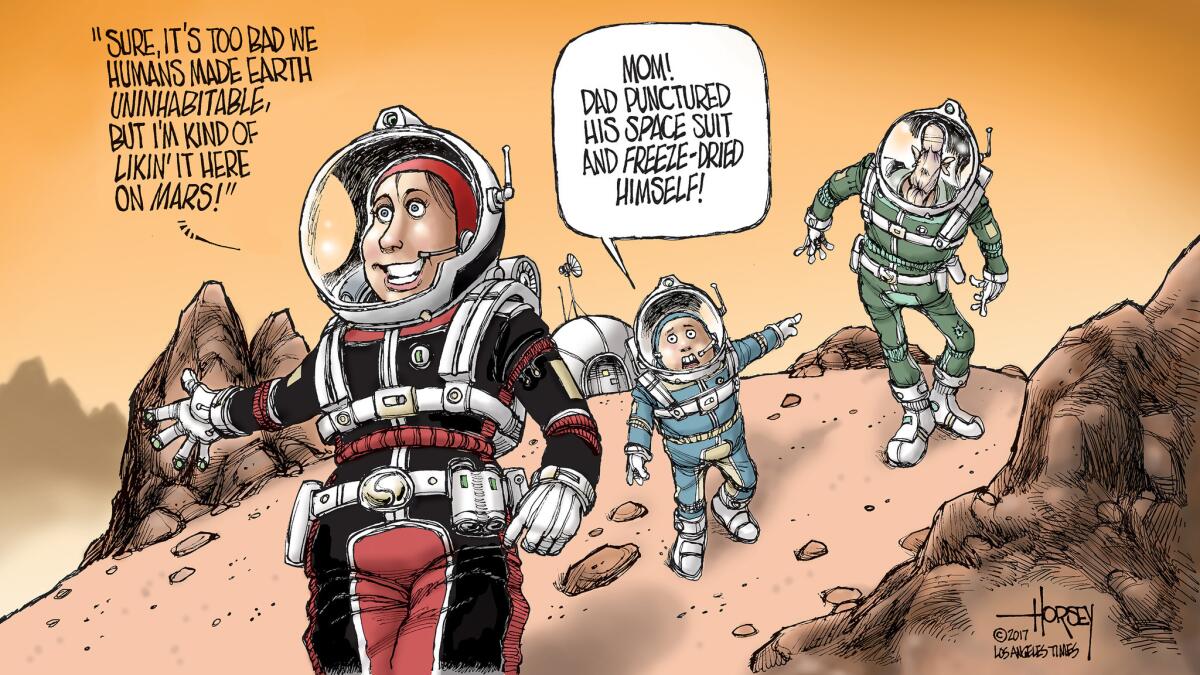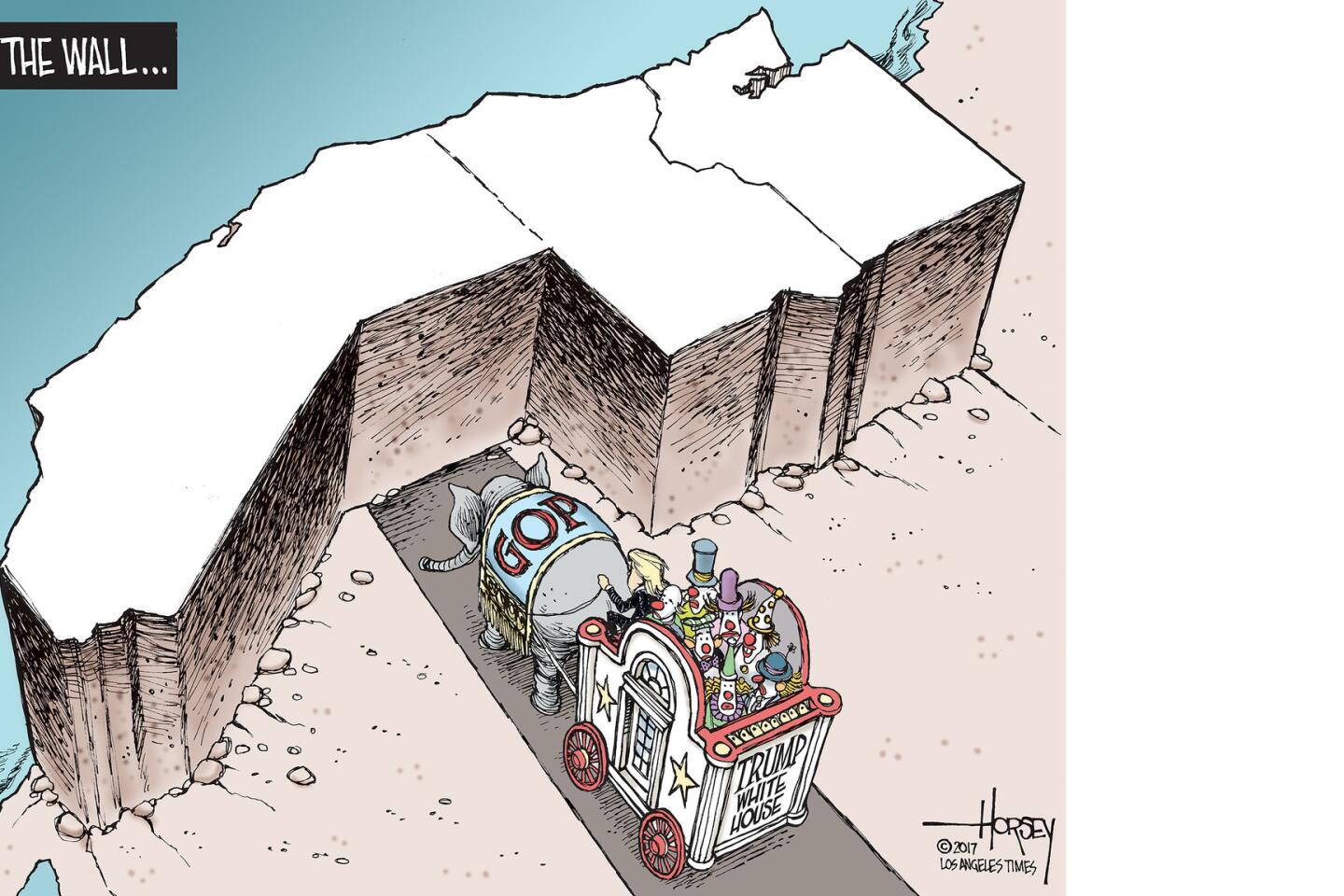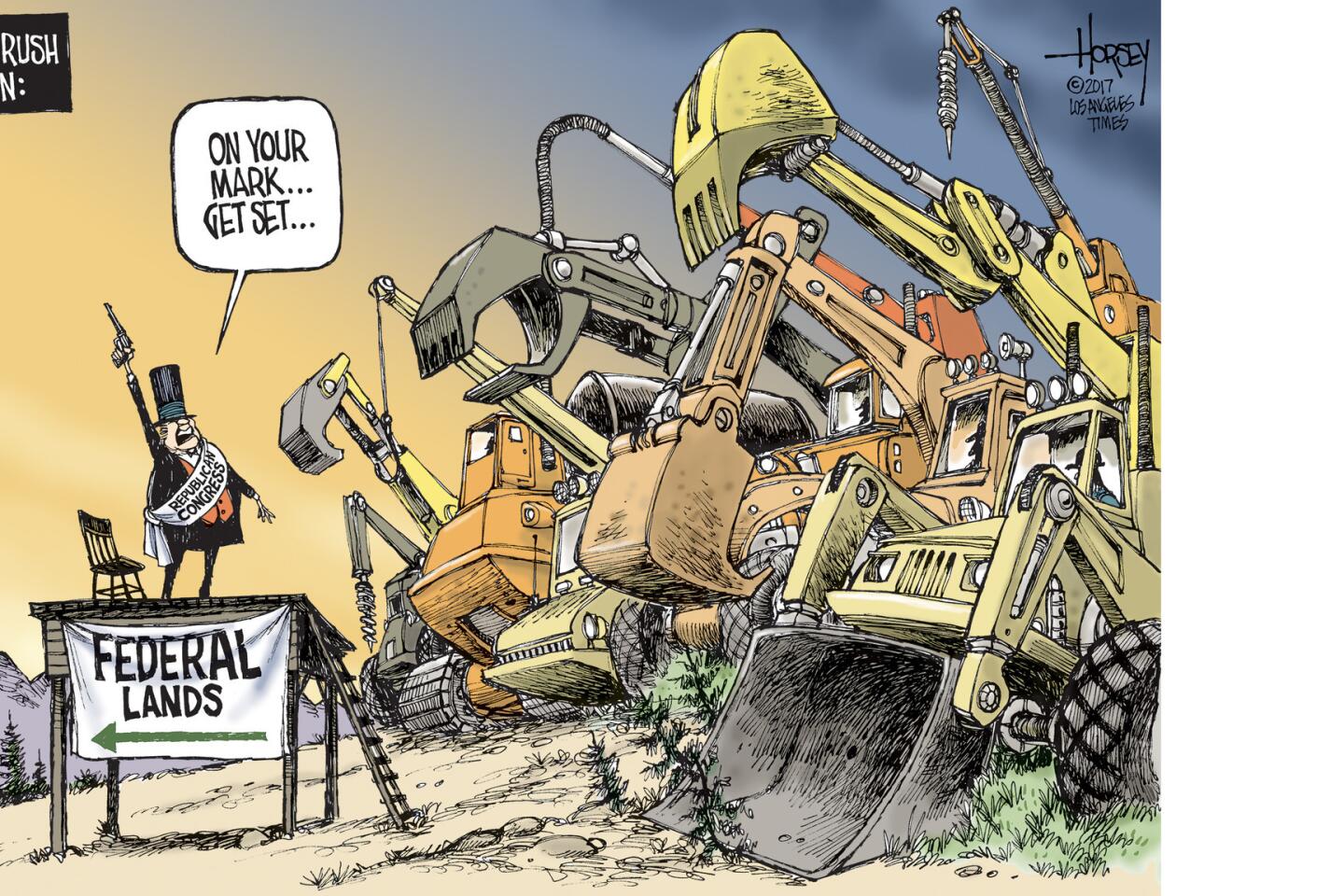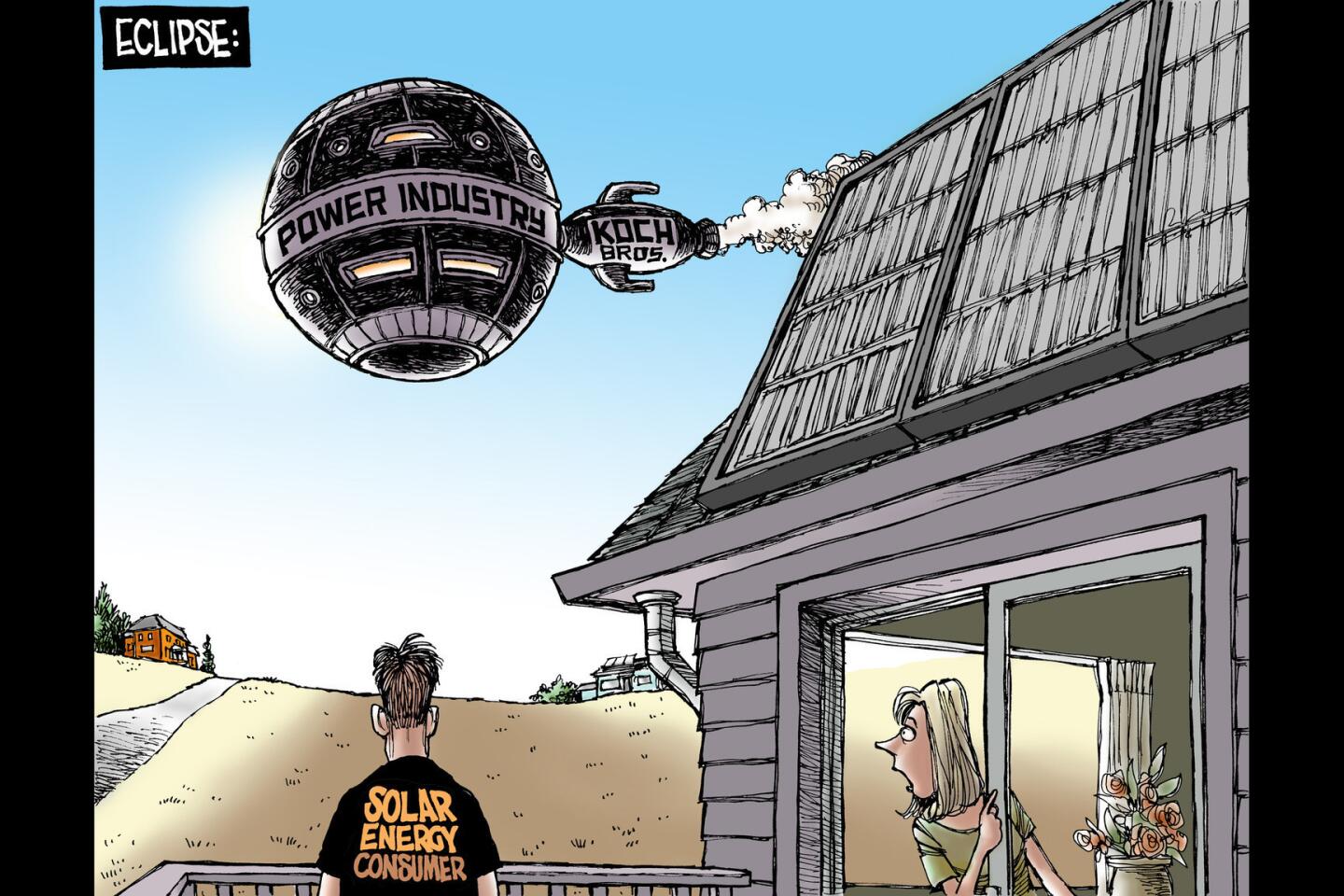Will humans wreck life on Earth before escaping to Mars and Saturn’s moons?

On Friday morning, scientists at the Jet Propulsion Laboratory in Pasadena will watch their Cassini spacecraft take a suicide dive into Saturn’s atmosphere, thus ending two decades of spectacular exploration of the giant planet and its multiple moons.
Cassini is about to run out of fuel and, though it could continue sending data back to Earth, the folks at JPL would no longer be able to steer its course. The decision was made to destroy the spacecraft now to avoid any chance that it might crash into Titan or Enceladus and contaminate the potentially life-sustaining environments of either of those moons.
Those are magic words: life-sustaining. During its long trek around Saturn, Cassini discovered that Titan and Enceladus both contain elements that could allow life forms to develop and that habitability may not be out of the question. But don’t pack your bags for a trip to Saturn yet. Ours is not a Star Wars galaxy where humans can hit warp drive and zip between an array of planets that are all equally hospitable. In the non-fictional universe, the tiny blue speck called Earth is the only known environment where human beings can survive and thrive without the aid of complex technology.
In terms of meteorology and geology, Titan and Earth have many things in common. Cassini discovered liquid lakes on Titan — some as big as 20 miles across. They may not be conducive to water skiing, however, since they contain liquid methane or a combination of methane and ethane. Plus, it’s not bikini weather on Titan, where the average temperature is minus 290 degrees Fahrenheit.
If you are looking for waterfront property, Enceladus might be the place to go. The Cassini probe found strong signs that there are vast reservoirs of liquid water on that moon. The catch? This oceanic world is encased in ice that is many miles thick.
Of course, no one is suggesting that the moons of Saturn will provide a place of refuge for human beings anytime soon. That is being said about Mars, though. NASA hopes to have a Mars colony established by the 2030s. Elon Musk, the brilliant billionaire behind Tesla and SpaceX, is even more ambitious. He believes a city of 1 million people “with iron foundries and pizza joints” can be achieved within 50 years. He wants to be one of those people and hopes to die on Mars, though, as he has stipulated, “not on impact.”
According to an article in the London Telegraph, Musk envisions the trip to Mars, not as a cramped, long slog, but as something akin to a cruise ship in space with movies, restaurants, lectures and zero-gravity games.
The serious challenges come once one arrives on the Red Planet. As anyone who saw Ridley Scott’s 2015 movie “The Martian” knows, surviving on Mars is not the easiest task. Temperatures dip from a balmy 70 degrees to an unimaginably chilly minus 225. There is no vegetation to eat and no animals to hunt. Monumental sand storms dwarf our terrestrial hurricanes. There may be plentiful water, but no one has found it yet. And all of that is not nearly the worst of it.
Gravity is a big problem — or the lack of it. Living in a place with 38% as much gravity as Earth, humans would quickly see their muscles shrink, their hearts grow weak and their bones deteriorate. Then there’s the low atmospheric pressure that would make a walk in the pale Martian sunshine a bit unpleasant. All the water in a human body would quickly evaporate — tears, saliva, skin mucous, the water in the lungs. Death would not be immediate, but that is irrelevant since the lack of oxygen in the air would already have killed you. And did I mention deadly radiation?
A space suit, of course, can offer protection and artificial environments may be able provide a place from which Mars colonists can escape all the perils of their new home. And Musk is right that, however harrowing life on other planets may be, humans need to become a multi-planet species if we want to avoid eventual extinction.
The Earth will not last forever. In about 5 billion years or so, our sun will have become so enlarged that it will burn up the Earth (something that will happen to Mars, as well). Humans will be long gone by then because, in a billion years, the expanded sun will start boiling the oceans and human existence here will have become impossible. Or maybe a giant asteroid will take us out sooner than that, just as one wiped out the dinosaurs. A more immediate worry, though, is that we will do ourselves in.
In much less than 1 billion years and maybe in as little as 100, humans could so contaminate our home planet and disrupt the Earth’s climate that life — at least civilized life — would be unsustainable. That is why, as we dream of cities on Mars and as we explore distant moons, we should not be lulled into thinking we can quickly escape the mistakes we make here on Earth.
Besides, why be in a rush to take leave of a planet with trees and birds and mammals and amphibians and fish and streams and lakes and seas and rain and snow and bright sunny days and food grown from the ground and air that we can actually breathe? This place has been good to us. We need to do a much better job of keeping it habitable while we still have the chance.
Follow me at @davidhorsey on Twitter
More to Read
A cure for the common opinion
Get thought-provoking perspectives with our weekly newsletter.
You may occasionally receive promotional content from the Los Angeles Times.






























































